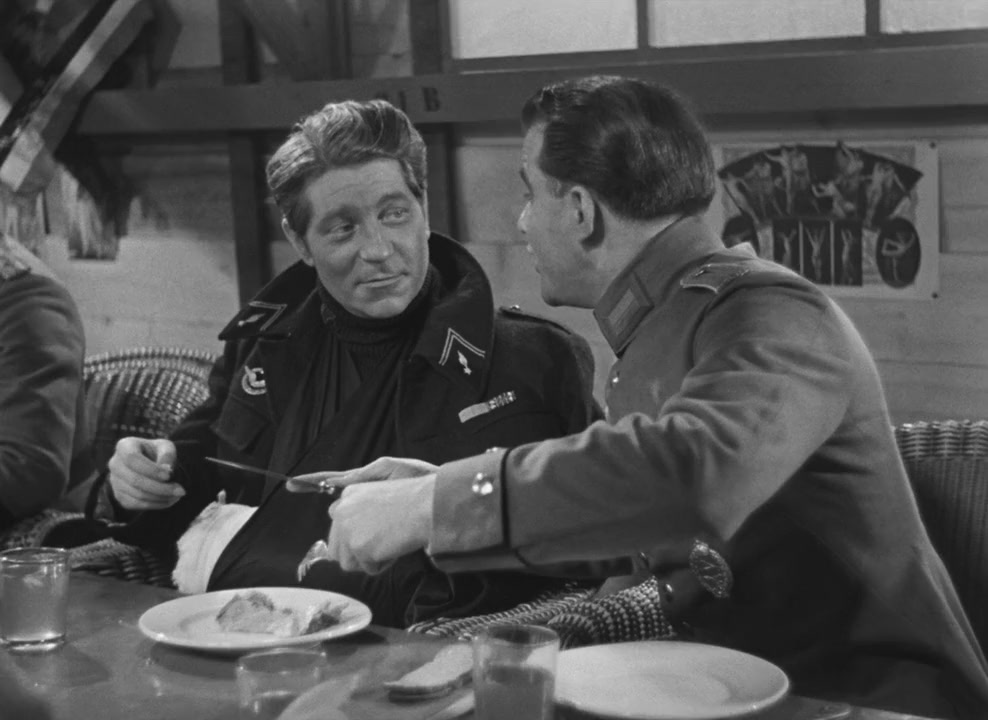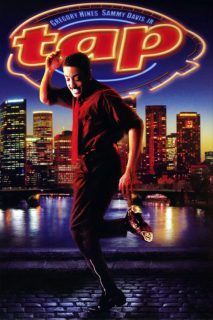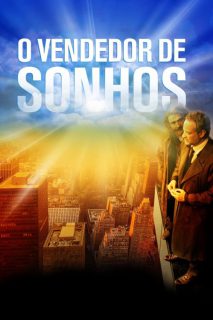
- Year: 1937
- Released: 12 Sep 1938
- Country: France
- Adwords: Nominated for 1 Oscar. 6 wins & 2 nominations total
- IMDb: https://www.imdb.com/title/tt0028950/
- Rotten Tomatoes: https://www.rottentomatoes.com/m/la_grande_illusion
- Available in: 720p, 1080p,
- Language: French, German, English, Russian
- MPA Rating: Not Rated
- Genre: Drama, War
- Runtime: 113 min
- Writer: Charles Spaak, Jean Renoir
- Director: Jean Renoir
- Cast: Jean Gabin, Dita Parlo, Pierre Fresnay
- Keywords: escape, france, prisoner, germany, camp,
 | 8.1/10 |
 | 97% – Critics |
 | 92% – Audience |
The Grand Illusion Storyline
During WWI, French Captain de Boeldieu and Lieutenant Maréchal are shot down over Germany by Captain von Rauffenstein during a reconnaissance mission. The two French officers are captured. There is an instant rapport between von Rauffenstein and de Boeldieu, who he sees like himself, a career military man of high rank who should be afforded the respect of the position. This hierarchy has nothing to do with life outside of the military. Even at the Hallbach POW camp where they are initially housed, de Boeldieu and Maréchal are treated differently within the ranks of the other POWs. de Boeldieu and Maréchal themselves treat each other cordially but with guarded friendship, only because of their current situation. Time does not change their relationship. This hierarchy becomes more pronounced when de Boeldieu and Maréchal among others are transferred to Wintersborn POW camp on the request of von Rauffenstein, who is now the commandant there. Since their last meeting, von Rauffenstein was permanently injured leading to this new assignment at Wintersborn, a converted 13th century castle. When Maréchal and fellow captive Rosenthal muse about their next escape attempt, de Boeldieu understands his position in the plot which is in keeping with his position among the other POWs and his special relationship with von Rauffenstein.
The Grand Illusion Play trailer
The Grand Illusion Photos



The Grand Illusion Torrents Download
| 720p | bluray | 1.02 GB | magnet:?xt=urn:btih:1EBA5277F54B2A0A94C61BCE8B9E8B84C80F33E2 | |
| 1080p | bluray | 1.89 GB | magnet:?xt=urn:btih:BC072456AC403194FFB8CF32D7835C7F2D0D6C76 |
The Grand Illusion Subtitles Download
| Greek | subtitle La.Grande.Illusion.1937.720p.BluRay.x264. |
The Grand Illusion Movie Reviews
Its Historical Significance Is No Illusion
Franklin Roosevelt said of it: “Everyone who believes in democracy should see this film”. Mussolini banned it in Italy, and Hitler’s Ministry of Propaganda banned it in Nazi Germany. The film vanished during WWII, and was thought to have been destroyed. Then it was recovered in 1946, but in an altered state. Decades would then pass before the original negative could be confirmed.
The Nazis hated the film because of its pacifist, anti-war, theme. The setting for the film is Germany in 1914, during WWI. Germans capture several French officers and take them to a POW camp, specifically for officers. After several escape attempts, the French officers get shuffled off to a presumably escape proof castle, run by Rauffenstein (Erich von Stroheim), a flamboyant German officer with a forbidding persona.
Unlike other war movies, “La Grande Illusion” shows no actual combat, and the number of deaths is minimal. The film’s tone is surprisingly lighthearted. Writer/Director Renoir conveys a sense of community among the French prisoners, despite their differences in social class. We see them several times sitting around a table eating, and chatting amiably. The cordiality between prisoners and their jailers is also surprising. It’s not exactly a hug fest, but the predominant feeling among the men is respect for fellow officers, even if those officers are your enemy. None of the French or German officers want war; it’s just their “duty”, when called on.
In most of the film, scenes take place in small rooms or in that castle. Toward the film’s end, outdoor vistas provide a visual contrast. Except at the film’s end, I was amazed at how drab the surroundings are. Room furnishings are unadorned and contain the barest of essentials. Tables and floors are made of simple wood. The clothes are dreary and depressing. The stone castle is dank and forbidding. Music is made with simple instruments, like a harmonica or a flute. Of course, given the time period and considering the setting, such drabness and simplicity are not surprising. But the contrast with today’s complex world of modern luxuries, that we take for granted, is striking. The film’s B&W cinematography accentuates the drab environment.
The story can be a bit confusing in the first half, because the relationship between the jailers and the prisoners is so unusual. Viewers need to give the film wide latitude on this. Watching the film a second time helps clarify who is doing what to whom. The plot is easier to follow in the second half.
The film’s acting is credible. I especially liked the performance of von Stroheim, all decked out in that imposing uniform, that monocle, and with that stiff bearing.
“La Grande Illusion” is an unusual “war” film, one that had real significance during WWII. For this reason alone, it deserves to be seen.
It got better with a second viewing
I saw this film a few years back–before I really appreciated French cinema. I liked the film but didn’t think all that much about it and probably would have given the film a score of 6 or 7 had IMDb been available. However, after having seen a huge number of older French films that are available here in the States, I have really come to appreciate the films more and more–especially since they offer a slightly different style from the typical fare from Hollywood at the time. Neither is necessarily better–just different. And after having watched a ton of films, I really appreciate the difference. Now, I couldn’t imagine scoring the film with anything lower than a 9, as it was truly an exceptionally made film with tremendous acting, writing and direction.
In many ways, this film is like a pacifist version of Stalag 17 without the comedy. Like J’ACCUSE, it is a decidedly anti-war French film that probably did a lot to convince the French that war wasn’t glorious and was in fact often pointless. In hindsight, this was a great message but was delivered at the absolute worst time. The view of this film that the Germans and French weren’t so different in WWI and they really had no reason to kill each other is very true–it was a stupid and wasteful war. But, given the evilness of the Nazis, who were poised to take over Europe, the message left the French ill-prepared to fight a war that needed to be fought and fought to win. Talk about bad timing! However, despite the timing, this was a marvelous film as instead of the usual jingoistic view of war, the characters were like real men and the Germans weren’t mindless monsters. This full and realistic view of the war was echoed in other exceptional films such as ALL QUIET ON THE WESTERN FRONT, THE EAGLE AND THE HAWK and ACE OF ACES. And, the ending of the film really summed up the war and the futility of meaningless death and carnage.
Beautiful, interesting and thoughtful–a terrific war film that is timeless despite its age. Watch it twice, if need be, and you’ll no doubt be impressed.



